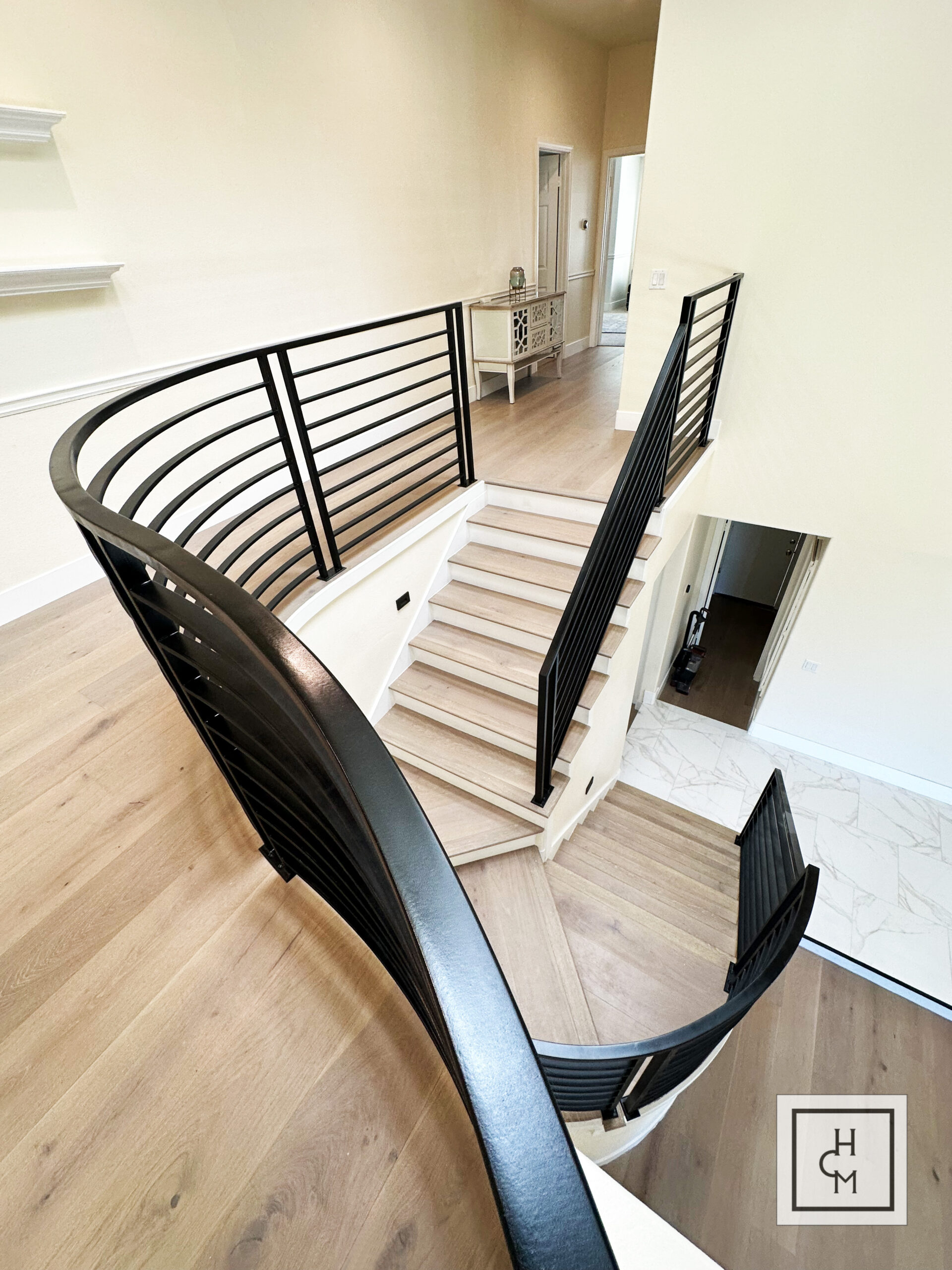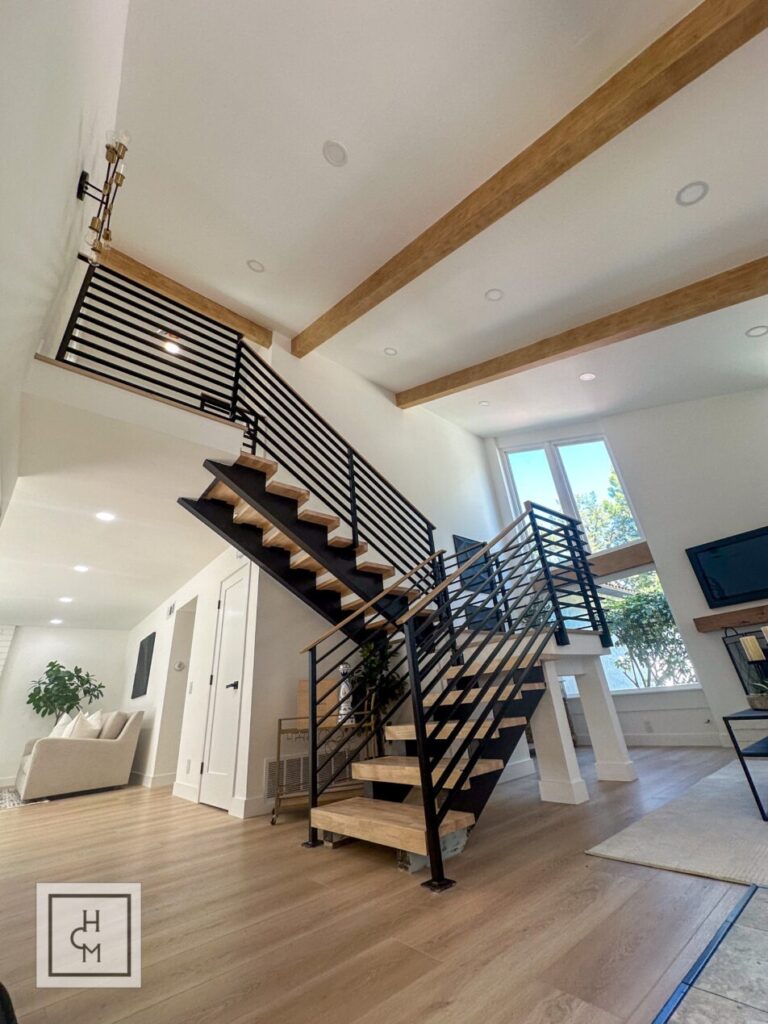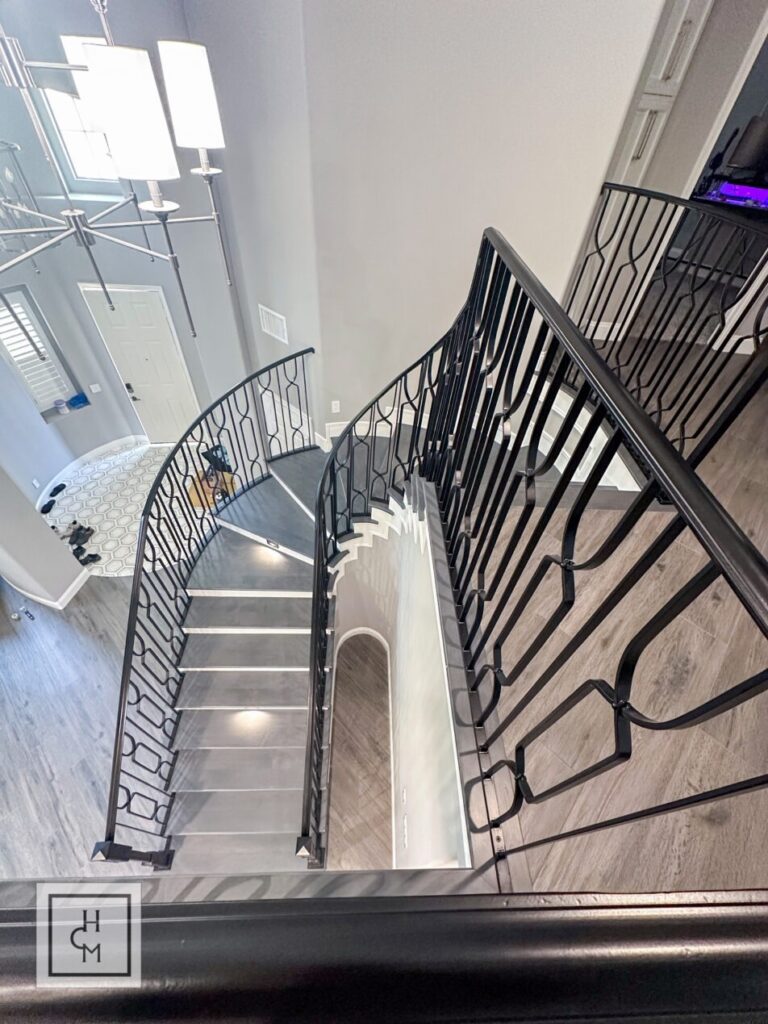
Let’s be real for a second: when most people think about home renovations or new constructions, stairs and railings are usually an afterthought. You know, those “we’ll deal with it later” kinds of things. But here’s the truth: good metalwork, especially around your stairs and railings, is what holds your home (or building) together safely and stylishly.
And here’s where certified stair and railing contractors come into play. They are not just handymen who come with a toolbox. These are the individuals who get to know structure, precision, code compliance, and design in one go.
So yeah, hiring the right people matters more than most realize. Let’s dive into why.

You can’t talk about stairs and railings without talking about metalwork. It’s the hidden hero. These materials are steel, aluminum, and wrought iron, which make your structure durable, balanced and strong.
And when it’s done right, metalwork doesn’t just look good. It lasts for decades with barely any fuss. When it’s done wrong, though? You’ll notice fast-wobbly railings, uneven steps, and rust spots popping up too soon, maybe even a safety hazard waiting to happen.
That’s exactly why certified metal and stair contractors exist. They make sure you don’t end up with the second scenario.
Here’s a simple truth: stairs and railings are there to keep people from falling. That’s literally their job.
Whether it’s a residential setup or a big commercial project, proper installation isn’t just about design or aesthetics. It’s about safety compliance.
Certified contractors don’t “wing it.” They follow building codes, load requirements, and design standards to make sure that every stair, tread, and railing can actually handle real-life use.
Let’s say your railing height is off by even an inch; that might sound small, but it could mean it fails inspection or worse, fails someone’s weight when leaned on. A certified contractor doesn’t let that happen. They measure twice (sometimes thrice), they test, and they make sure what’s built can stand up to both time and weight.
A lot of people underestimate how much design goes into stair and railing work. You’re not just building something functional; you’re building something visible.
Think about it. Your staircase often becomes a centerpiece in the home. Or in commercial buildings, it’s the first thing people see when they walk in. It’s a part of the architectural story.
Certified contractors understand the balance of how to merge strength with aesthetics. They know how to take a drawing or vision from an architect and make it real, using the right metal types, finishes, and welds that match the look and performance you want.
You can’t get that kind of precision or finesse from just anyone with a drill and a welder.
You might be thinking, “Okay, but what’s the big deal with certification? If someone has experience, that’s good enough, right?”
Not quite.
Certification in the metalwork or stair industry means that a contractor has been tested, trained, and verified to meet professional standards. It’s proof that they understand not just how to build, but how to build safely and correctly according to engineering and architectural codes.
It also means they keep up with updates in the industry, new materials, safety standards, fabrication techniques, and installation methods.
When you hire a certified contractor, you’re paying for peace of mind that the person working on your stairs isn’t guessing their way through it.
Let’s get blunt for a second: cutting corners always costs more later.
Sure, you might save a few bucks hiring an uncertified contractor or a general handyman. But if the railing comes loose, or an inspector flags it, or worse, someone gets hurt, you’ll end up paying twice (or three times) to fix the mess.
Certified stair and railing contractors don’t just install things; they make sure your investment lasts. They use the right materials, follow specifications, and provide warranties that protect you.
And let’s not forget liability. If something goes wrong because of poor installation, the blame and cost often land on the homeowner or business owner. With certified pros, that risk is significantly reduced.
You can spot good metalwork a mile away. Clean welds. Perfect angles. Smooth finishes. Everything just looks solid and intentional.
That kind of craftsmanship doesn’t happen by accident. It comes from years of doing it right, learning from mistakes, and sticking to professional standards.
Certified contractors, especially those specializing in metalwork, take pride in the details. They know a sloppy weld isn’t just ugly; it’s weak. They know that a small misalignment in a stair stringer can throw off the whole balance.
When you hire someone certified, you’re not just getting labor. You’re getting skill, precision, and pride in work.
That’s what separates a “job done” from a “job done right.”
The requirements for a commercial staircase are very different from those of a residential one.
The commercial spaces must be made to conform to more rigorous safety codes and weight capacity, and, in most cases, tailor-made fabrication to accommodate design schemes or architectural standards.
Qualified contractors are familiar with all that. They are able to deal with engineers and architects, do permit paperwork, and ensure your construction passes the first time.
Although the residential projects are smaller in scale, they demand the same amount of accuracy, particularly when dealing with metal railings or floating stairs. A single inaccurate cut or measurement may destroy the flow or beauty of your whole space.
It might be your house or a big structure, but here is where certification will be used to provide consistency, the one that is with you over decades.
Metalwork goes beyond stairs. Custom railing systems, balconies, fences, gates, and ornamental features are generally made by certified metal fabricators.
When you engage with a qualified contractor, you frequently work with a team that can handle numerous project sections to ensure quality and finish.
One reason Hand Crafted Metalworks is so well-known is because. They master every aspect of metal design that makes a structure safe, practical, and attractive, not simply stairs and railings.

When deciding on a contractor, it is easy to pay attention to the initial expenses. However, you should consider long-term value.
An approved stair and railing contractor will provide quality that will last, which means fewer repairs, less maintenance, and no untimely failure years down the line.
You are also receiving the guarantee that in case something does go wrong, there is accountability. Secured people tend to give assurances or warranties of their services, which unqualified people do not.
Thus, you may spend a little more now, but you will save much more in the future. It is the sort of mathematics that is really sensible.
Alright, so you’re convinced you need a certified stair and railing contractor. How do you find one that’s actually good?
Here’s what to look for:
And remember, if someone’s price sounds too good to be true, it probably is.
Despite their unassuming appearance, stairs and railings are crucial to any home or structure. They're your daily support.
Hiring a professional stair and railing contractor goes beyond following guidelines. Safety, workmanship, and long-term peace of mind are key.
Finally, good metalwork is something you don't have to worry about. Just trust it.
Say no to less. Choose experts in their field.
Find talented metalworkers at Hand Crafted Metalworks who blend accuracy with beautiful design. We've earned a reputation by converting metal into lifelong art.
The primary role of a stair railing is to provide safety to avoid falling and to gain balance when climbing stairs. However, it is in the design as well. A tram railing is a well-designed railing that will beautify your area and maintain the safety of all.
Stairs connect spaces. Simple as that. They enable people to move around the floors in case lifts are not available. But stairs are a design element; besides utilitarian need, stairs define the circulation of your building, not only in practice but also in appearance.
Demand certification evidence from them or check their credentials using local construction boards or trade associations. A valid contractor will never be unwilling to present you with his/her certification documents.
It relies on your surroundings and style. Steel and aluminum are robust and contemporary, whereas wrought iron is classy and sustainable. Certified contractors will assist you in making a choice in terms of strength, aesthetics, and budget.
Good metalwork doesn’t need constant maintenance. Just occasional cleaning and inspection for rust or looseness. Certified contractors usually design railings to be low-maintenance and weather-resistant.